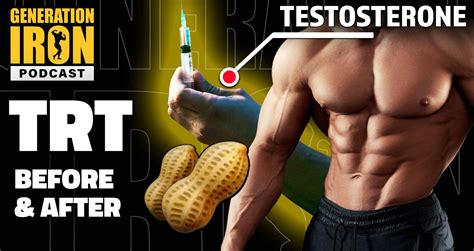Best diet & training to naturally optimize men’s testosterone levels?

Testosterone, the primary male sex hormone, plays a crucial role in men’s health, influencing muscle mass, bone density, fat distribution, red blood cell production, and sex drive. While levels naturally decline with age, several lifestyle factors can either accelerate this decline or support healthy production. The good news is that through strategic diet and training, men can often naturally optimize their testosterone levels.
The Cornerstone of Diet for Testosterone
Nutrition is paramount when it comes to hormone regulation. A balanced diet rich in specific nutrients can significantly impact testosterone production. It’s not just about what you eat, but also what you avoid.
Essential Macronutrients:
- Healthy Fats: Often misunderstood, healthy fats are critical for hormone production, including testosterone. Sources like avocados, nuts, seeds, olive oil, fatty fish (salmon, mackerel), and egg yolks provide cholesterol, a precursor to testosterone. Aim for a good balance of monounsaturated, polyunsaturated, and saturated fats (from healthy sources like coconut oil or grass-fed butter).
- Protein: Adequate protein intake supports muscle growth and repair, which is indirectly linked to testosterone. Lean meats, poultry, fish, eggs, dairy, and legumes are excellent sources. Aim for about 0.7-1 gram of protein per pound of body weight.
- Complex Carbohydrates: Carbs provide energy for workouts and help manage cortisol levels, a stress hormone that can suppress testosterone. Choose complex carbs like whole grains, fruits, and vegetables over refined sugars.
Key Micronutrients:
- Vitamin D: Often called the ‘sunshine vitamin,’ Vitamin D is actually a steroid hormone and is strongly linked to testosterone levels. Sun exposure is the best source, but supplements and fortified foods can help.
- Zinc: This essential mineral plays a vital role in testosterone synthesis. Red meat, shellfish, legumes, nuts, and seeds are good sources.
- Magnesium: Involved in over 300 biochemical reactions in the body, magnesium can increase free and total testosterone. Found in leafy green vegetables, nuts, seeds, and whole grains.
Foods to limit or avoid include excessive alcohol, highly processed foods, sugary drinks, and trans fats, which can negatively impact hormone balance and overall health.

Training Protocols for Peak Testosterone
Exercise is a powerful natural testosterone booster, but not all training is created equal. The type, intensity, and duration of your workouts matter.
Strength Training:
This is arguably the most effective form of exercise for stimulating testosterone production. Focus on compound movements that engage multiple muscle groups:
- Squats: Barbell squats, front squats, goblet squats.
- Deadlifts: Conventional, sumo, Romanian deadlifts.
- Bench Press: Flat, incline, decline.
- Overhead Press: Standing or seated.
- Rows: Barbell rows, dumbbell rows, cable rows.
Aim for heavy weights with moderate reps (4-8 reps per set) and sufficient rest between sets (60-120 seconds). Consistency is key; aim for 3-4 full-body or split strength training sessions per week.
High-Intensity Interval Training (HIIT):
Short bursts of intense exercise followed by brief recovery periods can also significantly elevate testosterone levels. This can involve sprints, cycling, or bodyweight circuits. Integrate 1-2 HIIT sessions per week, but avoid overdoing it, as excessive strenuous exercise can sometimes have the opposite effect.
Cardio in Moderation:
While essential for cardiovascular health, prolonged, moderate-intensity cardio can sometimes lead to increased cortisol and decreased testosterone. Incorporate moderate cardio for overall health, but prioritize strength training and HIIT for hormonal optimization.

Lifestyle Factors Not to Be Overlooked
Beyond diet and training, several lifestyle elements play a critical role in maintaining healthy testosterone levels.
- Adequate Sleep: Sleep deprivation can drastically reduce testosterone. Aim for 7-9 hours of quality sleep per night. Hormones are primarily produced and regulated during deep sleep cycles.
- Stress Management: Chronic stress leads to elevated cortisol, which directly competes with testosterone and can suppress its production. Implement stress-reducing techniques like meditation, yoga, spending time in nature, or hobbies.
- Weight Management: Being overweight or obese, particularly with excess belly fat, is linked to lower testosterone due to increased aromatase enzyme activity, which converts testosterone into estrogen.
- Limit Alcohol and Avoid Smoking: Excessive alcohol consumption and smoking have been shown to negatively impact testosterone levels.

Putting It All Together: A Holistic Approach
Optimizing testosterone naturally isn’t about quick fixes; it’s about consistency and adopting a holistic, sustainable lifestyle. There’s no single magic bullet, but rather a synergistic effect of all these factors working together.
Monitor your progress, pay attention to how your body feels, and be patient. Hormonal changes take time. If you suspect significantly low testosterone, it’s always advisable to consult a healthcare professional for diagnosis and personalized guidance.

Conclusion
Naturally optimizing men’s testosterone levels is an achievable goal through a dedicated focus on a nutrient-dense diet, effective strength and HIIT training, and crucial lifestyle adjustments such as adequate sleep and stress reduction. By embracing these pillars of health, men can support their body’s natural hormonal balance, leading to improved energy, vitality, muscle mass, and overall well-being. This integrated approach not only boosts testosterone but enhances overall quality of life.










